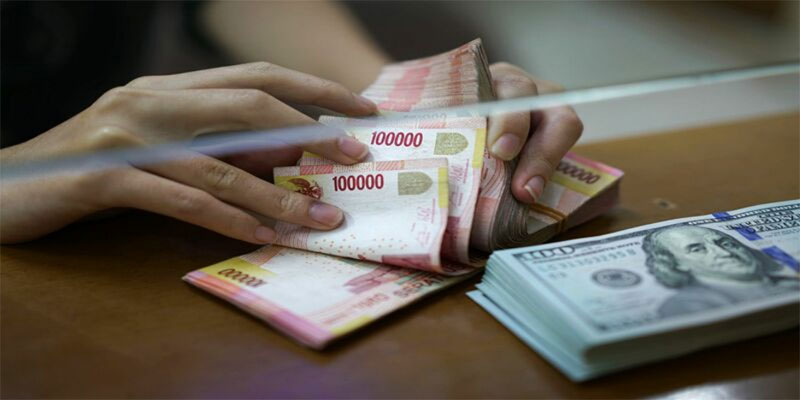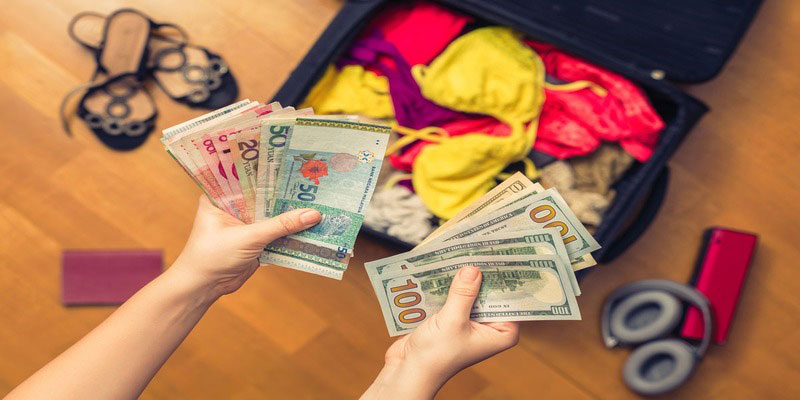In the past several years, "we have witnessed the proliferation of ATMs that demand enormous charges," he remarked. There are two ways in which ATMs win over the hearts of residents. To begin, they pay the store owners who host them quite well. (Shop owners have informed Semprini that they may earn as much as $1,000 per month by housing an ATM.) Also, consumers having accounts with banks based in the ATM nation may make withdrawals at reduced rates.
1. Eliminate ATM Fees
When traveling for an extended period, the cost of using an ATM may quickly pile up. To give you an idea, when traveling, you may use an ATM twice a week to get cash.
- Withdrawing funds from an ATM abroad with your usual debit card will cost you three separate fees.
- Using an ATM outside your bank's network will cost you (often between $2.50 and USD 5).
- There is a cost for using the ATM (often $3 to $5).
- Payment for the currency conversion cost (often 1-3% of the total amount).
You can see that the costs build up rapidly. Withdrawal fees might add up to a few dollars, depending on where you live. A total of $672 is owed after 12 months, or $14 weekly, $56 monthly, and $672 annually. How long of a trip to Southeast Asia could you take for that amount of money? Almost a whole month!
2. Avoid Credit Card Fees
The international transaction fee charged by credit cards is the next significant cost that has to be eliminated. The standard cost for using a credit card abroad is 3%. Because most of us now use credit cards for everything, it may quickly build up. Because frequent international card users are likely to be frequent card users overall, several credit card companies have begun waiving the foreign transaction charge. The Chase Sapphire Premium, Barclay Arrival Plus, Capital One, and Citi Premier credit cards are the ones I recommend since they don't charge you a fee whenever you make an international purchase. You may save significant money by using these credit cards abroad since there is no 3% foreign transaction fee.
3. Reduce The "Penalty" Of The Exchange Rate

When you use your card abroad, your home bank will do a currency conversion to your home currency and deduct a small fee. As a result, the posted pricing online is not the one you'll get. That's the going rate among large financial institutions, and you won't be able to receive it until you join them. We can only do our best to approach that pace. Consider the following to ensure that you come out on the winning end of conversion.
Make Use Of A Credit Card
Discounts are given to credit card companies. Unless you can, use a credit card instead of an ATM or cash since you will obtain a rate closer to the official interbank rate.
Use An ATM
After credit cards, because the exchange rate offered by ATMs is the best available. Since commercial banks receive a cut, they aren't quite as convenient as credit cards, but they're still preferable to exchanging hard currency. Since they are so low on the totem pole, currency exchanges provide terrible exchange rates.
Don't Use ATMs In Unusual Places
Avoid using ATMs in hotels, hostels, convenience stores, and gas stations. They're handy, but their usefulness comes at a price. Their ATM costs are consistently excessive, and their exchange rates are terrible. Forget the ATM and go to a large financial institution instead.
4. Avoid Changing Money At Airports

Because of their low status inside the financial hierarchy, airport exchange bureaus often cannot provide competitive exchange rates. Never use an airport exchange bureau unless absolutely necessary; the rates there are the worst you can find anywhere. Do not use Travelex since they have very high fees and exchange rates. Use them never, ever, ever. Don't use their ATMs, either.
Always Choose The Local Currency
You may usually be charged in your native currency when using a credit card overseas. Keep saying no. In every case, their exchange rate will be lower than what your bank would provide. Pay in whichever currency is accepted and let your credit card provider do the exchange. You may reduce your costs and improve your rate by doing this.
Conclusion
Throughout a lengthy journey, your money on bank fees may increase. It would be best if you took the initiative with your banking and foreign exchange transactions to save money. A little investment in preparation may save a significant amount of money throughout a lengthy trip. Too many tourists, in my experience, use ATMs repeatedly without first checking the currency rate. You'll find yourself on the wrong side of the argument. Use your head while banking. I've been traveling the globe for over a decade and have never had to pay a bank charge.




